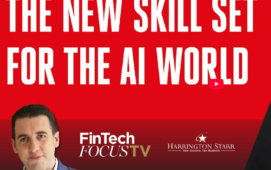
Quant, specialists in blockchain for finance, has integrated with automation software provider Make, to bring together Quant’s Overledger, a blockchain-agnostic API platform, with Make’s code-free automation software.
The integration enables the creation of automated workflows for managing digital and tokenised assets, a process which traditionally requires substantial coding knowledge. By offering a more accessible, code-free approach, Quant and Make seek to lower the technological barriers around adopting blockchain technology for digital and tokenised asset trading.
“What we do throughout our product range is to remove all the unnecessary complexity and deliver fast and easy-to-adopt features,” Dr Luke Riley, Head of Innovation at Quant, tells TradingTech Insight. “The Make integration accelerates that accessibility by offering traders no-code methods to link a firm’s existing tech stack to blockchain for trading functionality, such as automating digital asset trades via smart contracts.”
A key aspect of the integration is its focus on interoperability. Overledger’s ability to interact with multiple blockchain platforms allows institutions to manage assets spread across various blockchain networks more effectively. Another area of focus is rapid deployment, enabling institutions to quickly test and implement new trading strategies in digital and tokenised assets, reducing the time and resources typically required for such developments.
“The integration allows elements of a trader’s workflow to be automated, which saves time, resources and therefore money,” says Riley. “For example, if an organisation or developer is looking to build app-style functionality utilising blockchain technology (such as financial asset traders), our Make integration can help – it massively reduces the app time-to-market, and therefore build cost. Furthermore, the integration can be used to speed up proof of concepts (ie. the testing of thesis and projects) – again, saving time and ultimately, money. In addition, Overledger is interoperable, which means various chains are supported. So, the Make integration links users to interoperable technology which offers choice, as well as the simplicity of a no-code solution.”
The platform also offers extensive customisation options, allowing institutions to tailor their automated workflows according to their specific trading strategies, risk management requirements, and compliance needs.
“Quant is committed to providing interoperable and enterprise-grade blockchain technology to financial institutions, but also to non-technical users across different businesses. This is what sets us apart,” concludes Riley. “Integrating with platforms like Make.com makes our technology easily accessible to a much wider user base than most blockchain technology providers.”
Subscribe to our newsletter





